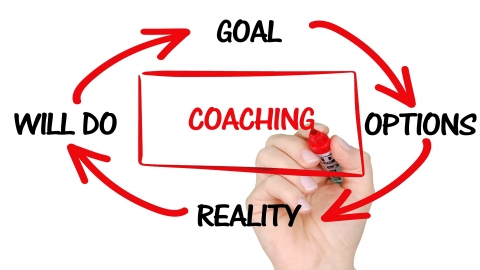

How to Best Answer Job Interview Questions
The best answers to frequently asked questions
Job interviews can be a stressful experience, so it's important you enter them well prepared. There are many pitfalls to answering common questions, so we put together this guide to walk you through how best to answer these questions in a way that will get you the job. Use the advice and examples below to formulate your own personal answers.
Want to view the video guide?
1. Why do you want this job?
Companies like to hire people who are passionate about the job, so you should have a great answer about why you want the position. Identify a couple of key factors that make the role a great fit for you, then share your positive thoughts about the company. Finally, it is important to describe how your experiences will enable you to help the company.
For Example: “I enjoy sales because I like the constant human interaction and the satisfaction that comes from closing a deal. I’ve always been passionate about technology, and I think your company is doing great things here.”
You never want to simply state what the company can do for you. And one of your reasons for wanting the job should be that you believe you can “hit the ground running” and have a positive impact on the company in some way.
2. What can you tell me about yourself?
This common question seems simple, but you need to be prepared. You don't need to give your complete history. Give them a pitch that shows exactly why you’re the right t for the job. Start o with the 2-3 specific accomplishments or experiences that you most want the interviewer to know about. Then you can wrap up by talking about how your prior experience positioned you for this job.
You could say: “I’m currently an account representative at Acme, where I handle the top performing clients. Before working there, I worked at another agency where I had three major retail brands. And while I really enjoyed the work that I did there, I’d love the chance to do something more with one specific retail company, which is why I’m so excited about this opportunity with Zappos.”
3. What are your weaknesses?
The purpose of this question is to judge your honesty and self-awareness. Nobody is perfect, so don't say that. And don't say anything really negative about yourself either. You should say something you are not good at that is not part of the job you are interviewing for. And it's even better if you can add on how you are taking steps to improve this weakness.
You might say something like: "I've never been good at public speaking, but I joined a group to help me practice and get better at it."
4. What are your salary requirements?
You need to do your research beforehand to have a good answer to this question. There are websites that you can look up salaries based on job, experience, and education. Glassdoor and Payscale are two of the most popular of these types of websites. Pick a number at the high end of the range to start the conversation with.
You want to communicate to the interviewer that your skills are valuable. If possible, you should try to avoid presenting a salary number before the employer does. Have your number in your head, but request that they make you an offer if interested in your services. That number can serve as a starting point for negotiation.
5. If you were an animal, which one would you want to be?
An odd question perhaps, but it is a question that some interviewers may find relevant. The interviewer may simply want to see how well you think on your feet. You can earn some bonus points if your answer touches on your strengths or personality in a positive way. And if you have never thought about yourself as an animal (as most of us have not), maybe just think about it and what you might say if asked.
6. What do you know about the company?
The purpose of this question is not whether you understand what the company does, but rather how much you care about the company. Anyone can read up on the website and regurgitate the mission statement. You have a chance to stand out by talking about how you personally feel about what the company does after you have demonstrated an understanding of the overall business.
You might start by saying: “I really believe in this company’s approach because you are doing something really innovative in a high growth industry…” or “I’m personally drawn to this company’s mission because of all the good impact you are having on a huge number of people.”.
7. What is your greatest professional achievement?
Don't be shy when answering this question. This is your chance to shine. You can use the S.T.A.R. method to format your answer:
S = Situation: Succinctly describe your role.
T = Task: Quickly describe the problem you needed to solve or task that you needed to complete.
A = Action: Spend more time on the details of how you came to a solution or resolution.
R = Result: Then emphasize the impact of this accomplishment, how it affected others and the business.
For example: “In my last job as the office manager it was my job to process incoming invoices. The manual procedure was very time consuming, so I implemented a software solution that saved the company 20 hours a month and gave management easier access to the cash flow data.”
8. What type of work environment do you prefer?
You want the details of this answer to match up with the details of the work environment you are applying for. It helps if you can get to know these details beforehand. Your preferences should be aligned with theirs if you really want the job, so it pays to do your research. You can try showing up early to observe people working there. Or look them up on social media and websites to find more information about the company and the people that work there.
For example: "I prefer an open cubicle environment where your team members are nearby to allow for collaboration."
9. Why were you fired?
You should answer this question honestly. But focus on the positive aspects of the lessons you have learned and how you have grown as an individual. Turn any negative into an advantage.
For example: “After we lost a huge client account, I spent a lot of time reflecting on the customer experience to make sure I can help prevent that sort of problem from happening in the future. I believe my experience will be a tremendous asset in my next role.”
10. What are your greatest professional strengths?
Instead of just saying what you think they want to hear it's better to be sincere. Try to find traits that accurately describe you and that are also relevant to the job you are applying for. The more specific the better. This will help you stand out. And then follow up with examples to illustrate how you have used these strengths to make a difference at work.
For example: Instead of saying “people skills,” say something like “persuasive communication” or “relationship building”.

























